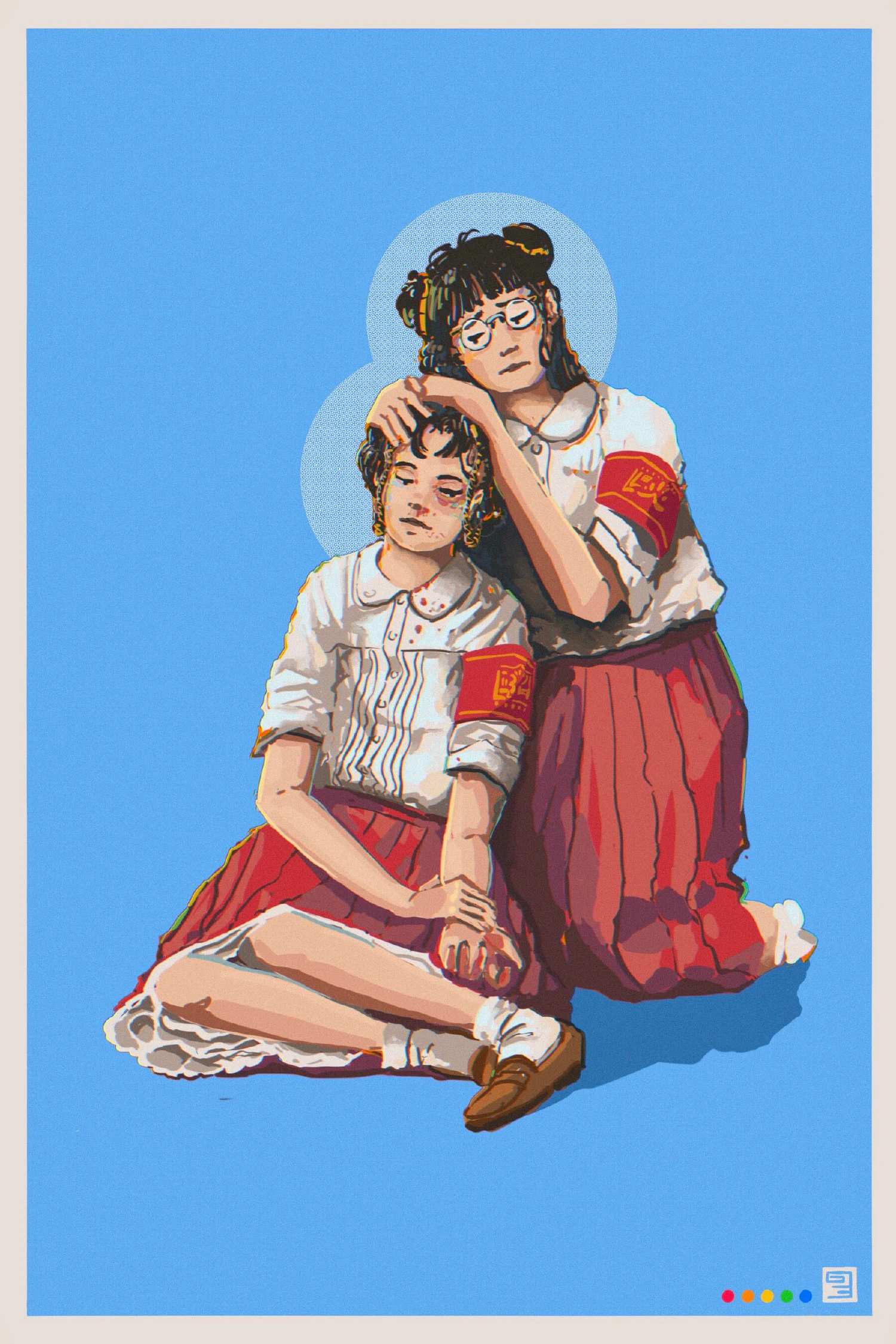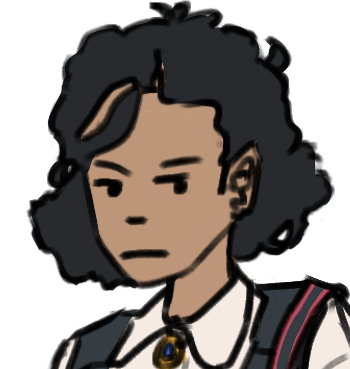NEW Story: Sunday Morning
Living Diplomacy

This article is not part of Vekllei canon. It may be old, obsolete or just a bit of fun.
Cobian first met Tzipora at Café Maz, though before then she knew her as ‘Tzipora, the New Girl,’ or, less favourably, ‘Tzipora the Gypsy,’ since there was some confusion about where she’d come from. The neighbourhood had known about her for a while, since people like to talk about foreigners, and when she was spotted at the Café people talked about that too. Meeting her, Cobian understood why she had become a fascination. She had keen blue eyes that were very gentle, and quite slow-moving. She would look at you, then casually to the wall, then to her shoes, then back to you. The peacefulness in her face contrasted dramatically with the intensity of her movements, which were frenetic and unconscious. She had a tic where she would pull on her nose and shirt, which combined with her novice Potenne, had her hands moving almost constantly as she talked. She was aware of this, because she would notice it periodically and grab her free hand, all without breaking eye contact or the cadence of her conversation. She was very funny; Cobian immediately liked her.
Cobian was a soft-willed sort of person, unopinionated and eager to be liked. Every fact filtered down to a reasonable compromise — there was a little bit of good in everything. Some people call that way of thinking gentle. Maybe she was just a little incurious.
Tzipora was her opposite. She lived in a binary world of Tzipora metrics. Things were either pure and beautiful, disgusting and reprehensible, or not worth thinking about. All things passed through this process — cars, food, clothes, the shape of a curve, and the form of a kettle. Some people call that way of thinking judgemental. She was.
This fierce intuition applied to people too, and Tzipora had a good memory. She wasn’t afraid to confront someone if they upset her, which earned her a slap now and then from some girl too rude to take shit from.
“You can hit me, slap me like that,” Tzipora would say, sneering and rearing back on her heels. “For you to raise your hand against me, like you would a dog — I’ll show you, bitch.”
She would stop by Cobian’s house, sometimes holding her collar together where a button used to be or nursing an elbow, and they’d sit out back where her mother couldn’t see them. Cobian would fold up a towelette and wipe the gravel out of her palms and knees.
“I don’t know where you get off, acting like a gangster,” Cobian says, dabbing her face. “It upsets me.”
“I don’t know, but she deserved it. You know that. Calls me a pisca; it makes me so angry. Not that she said it to me, but that she thinks she can say such a thing in the first place, like I’d just pretend I hadn’t heard it.”
Tzipora wrestled with the things she said and did constantly. In fact, the ongoing judgement of herself was perhaps the most nuanced opinion Tzipora ever had, one that didn’t fit into the pure/despicable binary. Most days, she landed on self-disgust, and yet…
Tzipora pulled on her nose and sniffed, like she did whenever she was nervous, and looked at Cobian.
“I’m sorry,” she said. “If you don’t like me blowing up, I’ll try and stop it for you.”
“I don’t want you to stop for me, I want you to stop for yourself. I’m just glad you’re okay,” Cobian said, and took her hand.
